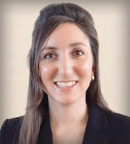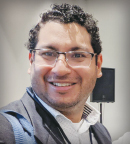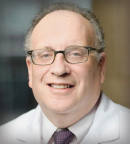
Anahid Hamparsumian, MD

Fernando Diaz, MD

Stuart M. Lichtman, MD, FACP, FASCO
The 2023 ASCO Annual Meeting again demonstrated the Society’s commitment to improving cancer care for all older adults. Pertinent questions related to treatment and management in this population were addressed in educational and oral abstract sessions, clinical science symposia, and case-based panels. There was also significant representation of research relevant to older and vulnerable patients in the poster abstracts chosen this year. Here we highlight key geriatric oncology–related presentations from this year’s meeting, focusing on the implementation of geriatric oncology models of care, efforts to balance treatment de-escalation and efficacy, and expansion of the ASCO Geriatric Oncology Community of Practice.
Implementation of Geriatric Oncology Models of Care
The Developing Sustainable Cancer and Aging Programs educational session featured a panel of distinguished geriatric oncologists and a compelling discussion on how to advance care for older adults with cancer in academic and community practices. Tina Hsu, MD, FRCPC, MMEd, Assistant Professor of Medicine in the Division of Medical Oncology at the University of Ottawa, introduced the session by describing major models of geriatric oncology: a primary geriatric oncologist model, a consultative model, and a geriatric-embedded consultative model. In doing so, she discussed the advantages and disadvantages of each model and considerations for their adaptation, such as when geriatric assessments are completed, by whom, and using what tools. Dr. Hsu detailed Kotter’s eight-step model for creating change borrowed from the business world and focused on incorporating sustainability as a central feature for success.
This panel discussion was followed by a presentation by Andrew Chapman, DO, FACP, FCPP, Director of the Sidney Kimmel Comprehensive Cancer Center (SKCCC), who shared how he and his colleagues have been building an integrated enterprise at their academic center that bridges cancer and aging initiatives across five pillars of clinical care delivery, basic science and translational research, population health, and training and education, using the National Cancer Institute–designated cancer center structure. He also spoke about the incorporation of the Geriatric 8 (G8) screening tool into the electronic health record (EHR) at SKCCC, training staff to improve completion rates, and thinking about how the health system responds to patients with greater vulnerability detected by screening. To illustrate these challenges, he shared preliminary data from 50 patients. Frailty was identified by a comprehensive geriatric assessment in 84%, despite 62% having been assigned an Eastern Cooperative Oncology Group (ECOG) performance status of 0 or 1. This discrepancy emphasizes the limitation of traditional performance measures to distinguish more vulnerable patients, as they lack the level of detail of a geriatric assessment.
The last speaker of the session, Rawad Elias, MD, Medical Director for Geriatric Oncology at the Hartford Healthcare Cancer Institute, presented his work on integrating geriatric assessment into routine care throughout a community health system. He discussed the importance of reflecting on what resources are available and adapting a plan to the needs of patients and other stakeholders, with adjustments made as indicated throughout the process. He emphasized that oncologists can successfully lead these efforts with a multidisciplinary team approach, describing how empowering nurses to complete assessments led to their assuming more responsibility in training staff to facilitate expansion to other sites in the Hartford system.
With the ultimate goal of extending geriatric assessment to all sites within their health system, Dr. Elias and his team shifted from an in-person model to an electronic geriatric assessment tool in the EHR, using the rapid fitness assessment developed at Memorial Sloan Kettering Cancer Center as a prototype. The information from the assessment is displayed in a geriatric oncology dashboard tab in the EHR, and providers are alerted to patients at higher risk for chemotherapy toxicity. The Hartford team has also developed a mechanism whereby specific deficits trigger orders for the indicated intervention. Since the rollout of this electronic geriatric assessment in July 2020, Dr. Elias and his team have expanded from one to five sites.
Additional work being done on clinical implementation was presented during the Geriatric Oncology Assessment to Implementation clinical science symposium organized by Chairs Tanya M. Wildes, MD, MSCI, and Efrat Dotan, MD.
Balancing Treatment De-escalation and Efficacy
With new cancer therapies being developed and approved for use at unprecedented speed, there are increasingly more options to tailor management for older adults. This year’s educational sessions on prostate cancer and breast cancer considered how we center our decisions around the older adult patient and account for treatment -toxicities. Of note, they have also started to address how we might use novel strategies to facilitate de-escalation of traditional treatment in an effort to reduce adverse effects while maintaining or improving disease control. In addition to the prostate and breast cancer studies, we have also chosen two lung cancer abstracts that compare outcomes for older adults receiving monotherapy with those on combination regimens.
During the educational session titled Management of Prostate Cancer in Older Adults, Elizabeth Kessler, MD, Associate Professor of Medical Oncology at the University of Colorado, underscored the importance of providing goal-concordant care for men with prostate cancer, as the incidence in those aged 65 and older continues to rise.
Ravi Parikh, MD, MPP, FACP, a medical oncologist at the University of Pennsylvania and Associate Director of the Penn Center for Cancer Care Innovation, followed with a discussion of how frailty in this population can be exacerbated with androgen-deprivation therapy and other modes of treatment as a consequence of resultant pain, insomnia, neuropathy, fractures, and lower urinary tract symptoms. He shared how proactive interventions such as exercise programs, psychological counseling, and nutritional changes might attenuate decline. Of ntoe, he addressed the need to maintain bone health given the elevated risk of fracture after 5 years on androgen-deprivation therapy and the associated increase in prostate cancer–related mortality. Indications for antiresorptive therapies particularly for castration-resistant prostate cancer were also reviewed. Promising work being done by Dr. Parikh’s group on the novel use of routine staging computed tomography scan data to measure bone mineral density and strength was presented as well.
Alicia K. Morgans, MD, MPH, a medical oncologist and Medical Director of the Surivivorship Program at Dana-Farber Cancer Institute, concluded the session by contrasting two cases of patients with metastatic hormone-sensitive prostate cancer with disparate performance statuses. She highlighted multiple trials that have demonstrated improved disease control with combination therapy over androgen-deprivation therapy monotherapy, as well as the early separation of the overall survival curve with abiraterone in the LATITUDE and STAMPEDE trials and with enzalutamide and apalutamide in the ENZAMET and TITAN trials, respectively.
Notably, Dr. Morgans pointed out that disease control was consistent across age groups for abiraterone and apalutamide. However, additional age-specific data are lacking, particularly with quality-of-life outcomes measures. This spurred conversation in the question-and-answer session about the need for investigator-initiated trials that are relevant to older adults, to study alternate dosing, limited-duration androgen-deprivation therapy, and single-agent androgen-deprivation therapy–sparing approaches in clinical practice.
Since Dr. Umberto Veronesi’s landmark study comparing breast-conserving surgery with radical mastectomy in 1981, the scientific community has continued to look for ways to de-escalate surgical invasiveness without compromising oncologic outcomes. In the educational session titled Not Too Little, Not Too Much: Optimizing More Versus Less for the Older Patient with Breast Cancer, Jessica F. Tseng, MD, MPH, a surgical breast oncologist and Medical Director of Breast Surgery at City of Hope Orange County, offered a review on the complex landscape of de-escalation in the context of surgical and radiation treatments, considering eligible groups, oncoplastic techniques, and safety.
Mara A. Schonberg, MD, MPH, an internist and Director of Research in Shared Decision Making at Beth Israel Deaconess Medical Center, continued with a presentation on shared decision-making in caring for older women with breast cancer. She emphasized the importance of engaging with patients as early as possible, including prior to screening mammograms, with consideration of tumor characteristics, risk of recurrence, life expectancy, lag time to when the benefit of treatment can be expected, and the patient’s preferences and values within a framework that involves active participation between the patient and family.
Although underused in clinical practice, the use of decision aids to support the decision-making process has been shown to improve patients’ knowledge, satisfaction, and communication. Etienne Brain, MD, PhD, Senior Medical Oncologist at Institut Curie and recipient of the 2022 B.J. Kennedy Geriatric Oncology Award, concluded the session by reviewing systemic therapy options for older patients with high-risk disease. In doing so, he described the limitations in applying evidence from the literature to a clinical setting because of the underrepresentation of older adults in studies. Patients who do enroll are often the “healthiest” older adults, rather than those who are more frail and carry multiple morbidities. Key principles integral to establishing a systemic therapy plan in this population, such as dose intensity, treatment combinations, and treatment duration, were considered.
With their abstract, Mao Uematsu, MD, of Tokyo Metropolitan Cancer and Infectious Diseases Center, Komagome Hospital, and colleagues presented the results from a multicenter retrospective study of patients with advanced non–small cell lung cancer (NSCLC).1 The investigators evaluated the efficacy and safety of immune checkpoint inhibitors combined with chemotherapy in adults aged 75 or older. A total of 1,245 patients with advanced NSCLC harboring no actionable mutations were included in the study. The majority of patients had an ECOG performance status of either 0 or 1. For 14% of patients, the ECOG performance status was 2.
Results revealed a median overall survival of 20.0 months for patients receiving immunochemotherapy, 19.8 months with immunotherapy alone, 12.8 months with platinum doublet chemotherapy, and 9.5 months with single-agent chemotherapy. No significant differences were found among PD-L1 subgroups. With respect to safety, a significantly higher incidence of grade 3 or more immune-related adverse events was observed among immunochemotherapy recipients compared with those given immunotherapy alone—24.3% and 17.9%, respectively. Pneumonitis was observed in 23.4% in the immunochemotherapy group and 15.6% in the immunotherapy-alone group. These results demonstrated no improvement in overall survival with the addition of chemotherapy to immunotherapy, while adding significant toxicity, which led the investigators to recommend immune checkpoint inhibitor monotherapy for PD-L1–positive NSCLC in older patients.
Another abstract considered the efficacy and safety of lurbinectedin for older patients with relapsed small cell lung cancer (SCLC); it was presented by Sophie Cousin, MD, and colleagues through a post hoc analysis of a phase II basket trial and the phase III ATLANTIS trial.2 The population of patients studied were aged 65 or older and primarily had an ECOG performance status of 1. When compared with the standard of care at the time—topotecan/cyclophosphamide plus doxorubicin plus vincristine—both combination lurbinectedin plus doxorubicin and single-agent lurbinectedin demonstrated a higher median overall survival (5.9 months, 9.0 months, and 9.7 months, respectively) and a more favorable side-effect profile, with fewer grade 3 or higher treatment-related adverse events. Based on this information, the authors concluded that lurbinectedin is an acceptable option for relapsed SCLC in older individuals.
Encouraging advancements are also being made for older adults with blood cancers. Results from the Alliance A041703 trial presented by Matthew Joseph Wieduwilt, MD, PhD, during the hematologic malignancies leukemia oral abstract session, suggest that older adults with newly diagnosed, Philadelphia chromosome–negative, CD22-positive, B-cell acute lymphoblastic leukemia may benefit from a chemotherapy-free treatment with inotuzumab ozogamicin induction and blinatumomab consolidation.3 In 33 patients, ranging in age from 60 to 84, the 1-year event-free survival was 75%, which the investigators contrasted with a historical event-free survival of 10% with conventional chemotherapy. Dedicated educational sessions on other hematologic cancers, including Older Adults With Newly Diagnosed Acute Myeloid Leukemia, organized by Catherine Lai, MD, MPH, and Management of Multiple Myeloma in Special Patient Populations, chaired by Sikander Ailawadhi, MD, discussed real-world considerations in attempting to maximize benefit and minimize toxicitites when treating older patients.
Useful strategies to help clinicians present the options to their patients and ultimately decide upon a treatment plan avoiding under- or overtreatment were described and demonstrated by the case-based panel session, Shared Decision-Making for Older Adults With Cancer Using Available Treatment Tools. Unique perspectives were provided by Clark DuMontier, MD, MPH; Kah Poh Loh, MS, MBBCh; and Melisa Wong, MD, MAS, and moderated by Daniel Richardson, MD, MSc, MA.
Expanding the ASCO Geriatric Oncology Community of Practice
One year after its inception, the ASCO Geriatric Oncology Community of Practice held its second in-person session at the ASCO Annual Meeting. Led by Co-Chairs Melisa L. Wong, MD, MAS, and Grant Williams, MD, MSPH, the Community of Practice offered a review of achievements throughout the past year, including the development of a leadership team, growth of the membership body, and successful quarterly meetings with guest speakers discussing pivotal research. Looking ahead, the Community of Practice intends to improve the care of older adults with cancer and their care partners through clinical education, community building and networking, and advocacy.
FOR MORE INFORMATION
ASCO educational books have been developed for a number of the sessions mentioned in this article:
- Developing Sustainable Cancer and Aging Programs
- Management of Prostate Cancer in Older Adults
- Not Too Little, Not Too Much: Optimizing More Versus Less Locoregional Treatment for Older Patients With Breast Cancer
- Systemic Therapy in Older Patients With High-Risk Disease
- Older Adults With Newly Diagnosed AML: Hot Topics for the Practicing Clinician
- Partnering With All Patients: Ensuring Shared Decision Making and Evidence-Based Management for Underrepresented Groups With Multiple Myeloma
For more on these and other available titles, visit ascopubs.org/journal/edbk.
The Community of Practice session featured a presentation from Hans Wildiers, MD, PhD, a pioneer in geriatric oncology research and recipient of the 2023 ASCO B.J. Kennedy Geriatric Oncology Award. Dr. Wildiers discussed the evolution of the field during his career spanning over 20 years, reflecting on the historical absence of older, frail patients in clinical trials. He underscored the need to rethink future clinical trial design that incorporates standard adoption of the geriatric assessment along with endpoints relevant to older patients such as quality of life, treatment toxicity, and overall utility—measures that have been demonstrated through landmark studies presented at previous ASCO Annual Meetings. The Patient and Caregiver Advocate Engagement education session chaired by Lisa Lowenstein, PhD, MPH, RD, offered solutions on how researchers might partner with patients to close these gaps.
The Community of Practice session concluded with Heidi Klepin, MD, MS, and William Dale, MD, PhD, presenting a prelude to the Practical Geriatric Assessment, with a review of the barriers that lead to physician nonadherence to the geriatric assessment, despite its proven utility and recommendation in the ASCO Guidelines. The Practical Geriatric Assessment has since been published in the Journal of Clinical Oncology,4 with a companion question-and-answer article in JCO Oncology Practice.5 It provides an updated, streamlined version of the geriatric assessment based on randomized controlled data, with specific action items for physicians tailored to whichever specific deficits are identified.
Looking Ahead
Next year’s ASCO Annual Meeting will focus on The Art and Science of Cancer Care: From Comfort to Cure. Clinicians and researchers in geriatric oncology will continue to play an important role in ensuring older patients receive care that is individually personalized to limit toxicity and improve outcomes while simultaneously supporting them through their treatment and survivorship.
DISCLOSURE: Dr. Díaz reported grants from the National Cancer Institute and Conquer Cancer Foundation; and has received honoraria from MJH Life Sciences and Catalyst Pharmaceuticals. Dr. Hamparsumian and Dr. Lichtman reported no conflicts of interest.
REFERENCES
1. Uematsu M, Tsukita Y, Tozuka T, et al: First-line immune checkpoint inhibitors alone or in combination with chemotherapy in real-life elderly patients with advanced non-small cell lung cancer (NEJ057). 2023 ASCO Annual Meeting. Abstract 9012. Presented June 5, 2023.
2. Cousin S, Paz-Ares LG, Fülöp A, et al: Efficacy and safety of lurbinectedin in elderly patients with relapsed SCLC. 2023 ASCO Annual Meeting. Abstract 8591. Presented June 4, 2023.
3. Wieduwilt MJ, Yin J, Kour O, et al: Chemotherapy-free treatment with inotuzumab ozogamicin and blinatumomab for older adults with newly diagnosed, Ph-negative, CD22-positive, B-cell acute lymphoblastic leukemia: Alliance A041703. 2023 ASCO Annual Meeting. Abstract 7006. Presented June 2, 2023.
Dr. Hamparsumian is an advanced research fellow in geriatric medicine at the Greater Los Angeles Veterans Affairs Medical Center, in affiliation with the University of California, Los Angeles, and Vice Chair of Trainee Education for the ASCO Geriatric Oncology Community of Practice. Dr. Diaz is a geriatric medicine/geriatric oncology fellow at the University of North Carolina at Chapel Hill, Chair of the ASCO Trainee and Early Career Advisory Group, and Vice Chair of Community Engagement for the ASCO Geriatric Oncology Community of Practice. Dr. Lichtman is Attending Physician (retired) at Memorial Sloan Kettering Cancer Center, Commack, New York; Professor of Medicine at Weill Cornell Medical College, New York; a consultant for Wilmot Cancer Institute Geriatric Oncology Research; and Past President of the International Society of Geriatric Oncology (SIOG).

